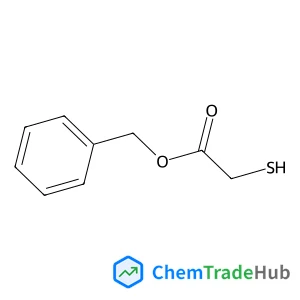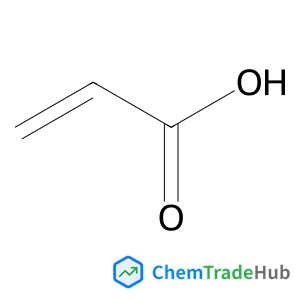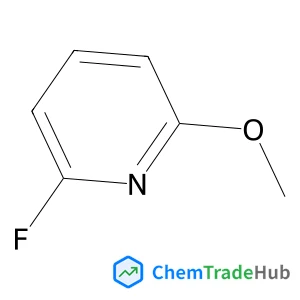Transition-metal-free insertion reactions of alkynes into the C–N σ-bonds of imides: synthesis of substituted enamides or chromones
Literature Information
Zhong Zheng, Ye Wang, Murong Xu, Lingkai Kong, Mengdan Wang, Yanzhong Li
A transition-metal-free tandem process for the synthesis of substituted enamides and chromones is presented. The insertion of isolated alkynes into the C–N σ-bonds of imides is involved in this tandem process. In the case of alkynones bearing an ortho-bromo-substituted aryl ring, chromones were selectively formed via the O-cyclization pathway. A variety of substituted enamides and chromones were prepared in good to high yields.
Recommended Journals
Related Literature
IF 6.222
Biomimetic hydrogels designed for cartilage tissue engineeringIF 6.843
Carbon and carbon composites obtained using deep eutectic solvents and aqueous dilutions thereofIF 6.222
Catalytic depolymerization of Kraft lignin to produce liquid fuels via Ni–Sn metal oxide catalystsIF 6.367
Surface structure-dependent electrocatalytic reduction of CO2 to C1 products on SnO2 catalystsIF 6.367
Retraction: Chemical synthesis and antigenic activity of a phosphatidylinositol mannoside epitope from Mycobacterium tuberculosisIF 6.222
Co9S8 integrated into nitrogen/sulfur dual-doped carbon nanofibers as an efficient oxygen bifunctional electrocatalyst for Zn–air batteriesIF 6.367
An environmentally friendly natural polymer as a universal interfacial modifier for fullerene and non-fullerene polymer solar cellsIF 6.367
Engineering nanoporous organic frameworks to stabilize naked Au clusters: a charge modulation approachIF 6.222
Triboelectric nanogenerators for a macro-scale blue energy harvesting and self-powered marine environmental monitoring systemIF 6.367
Source Journal
Chemical Communications
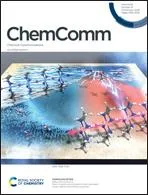
ChemComm publishes urgent research which is of outstanding significance and interest to experts in the field, while also appealing to the journal’s broad chemistry readership. Our communication format is ideally suited to short, urgent studies that are of such importance that they require accelerated publication. Our scope covers all topics in chemistry, and research at the interface of chemistry and other disciplines (such as materials science, nanoscience, physics, engineering and biology) where there is a significant novelty in the chemistry aspects. Major topic areas covered include: Analytical Chemistry Catalysis Chemical Biology and medicinal chemistry Computational Chemistry and Machine Learning Energy and sustainable chemistry Environmental Chemistry Green Chemistry Inorganic Chemistry Materials Chemistry Nanoscience Organic Chemistry Physical Chemistry Polymer Chemistry Supramolecular Chemistry
Recommended Compounds
Recommended Suppliers
 Schwedes + Schulze Schüttguttechnik GmbH
Schwedes + Schulze Schüttguttechnik GmbH Lianwater County Yishun Environmental Protection Co., Ltd.
Lianwater County Yishun Environmental Protection Co., Ltd. Taixing Chemical Co., Ltd.
Taixing Chemical Co., Ltd. Shandong Academy of Pharmaceutical Sciences Pilot Plant
Shandong Academy of Pharmaceutical Sciences Pilot Plant Ningbo Zhenlei Chemical Co., Ltd.
Ningbo Zhenlei Chemical Co., Ltd. Wuxi Huier Environmental Testing Equipment Factory
Wuxi Huier Environmental Testing Equipment Factory LOBA Feinchemie AG
LOBA Feinchemie AG Guangdong Huilian_DA Chemical Co., Ltd.
Guangdong Huilian_DA Chemical Co., Ltd. HST Maschinbau GmbH
HST Maschinbau GmbH Shandong Xishangxi New Materials Shareholding Co., Ltd. (API)
Shandong Xishangxi New Materials Shareholding Co., Ltd. (API)










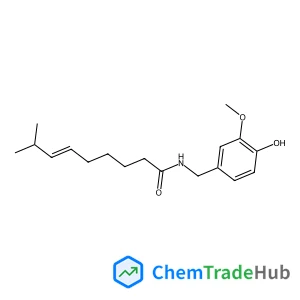
![315234-49-2 - 1-[(Tert-butoxy)carbonyl]-2-(prop-2-en-1-yl)pyrrolidine-2-carboxylic acid 315234-49-2 - 1-[(Tert-butoxy)carbonyl]-2-(prop-2-en-1-yl)pyrrolidine-2-carboxylic acid](/structs/315/315234-49-2-fe31.webp)
